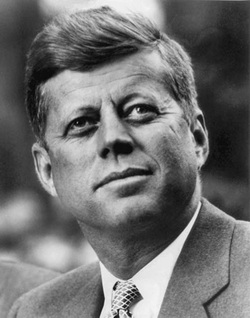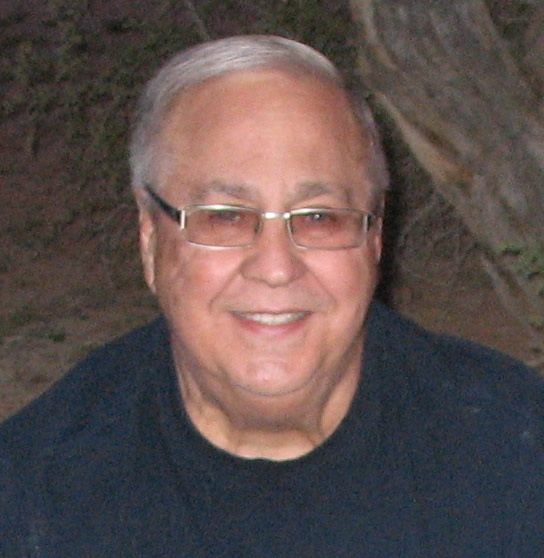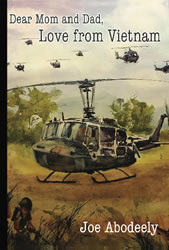
John F. Kennedy pledged to the world: "Let every nation know, whether it wishes us well or ill, that we shall pay any price, bear any burden, meet any hardship, support any friend, oppose any foe to assure the survival and the success of liberty." In August 1964, Congress enacted the Southeast Asian Resolution by a combined vote of
504-2. That was our mission. The Republic of Vietnam (South Vietnam) was a legal entity which the US was obligated to defend against Communist aggression pursuant to SEATO--Southeast Asia Treaty Organization.
After the battle for Hue during the Tet Offensive in 1968, Walter Cronkite, the most trusted man in America contributed to the “war on truth” when he opined:
“To say that we are mired in stalemate seems the only realistic, yet unsatisfactory, conclusion. On the off chance that military and political analysts are right, in the next few months we must test the enemy's intentions, in case this is indeed his last big gasp before negotiations. But it is increasingly clear to this reporter that the only rational way out then will be to negotiate, not as victors, but as an honorable people who lived up to their pledge to defend democracy, and did the best they could.”
Even President Johnson recognized that when he lost Cronkite, he lost the American people. This was a dramatic event and a powerful statement which helped perpetuate the misrepresentation that the US lost the battles during the Tet Offensive of 1968. There was little mention about the terrorism and atrocities the North Vietnamese Army (NVA) and the Viet Cong (VC) committed on the people of Hue and reported only after mass graves containing thousands of bodies were discovered. The minimization of the enemy’s atrocities was part of a disinformation campaign during the war which Mr. Grant seems to want to continue today.
Communist defectors used to laugh and express shock at how successful their campaign had been to portray the "National Liberation Front" to the west as something other than a classic Leninist "front" organization. Hanoi actually published an English-language translation of the proceedings of the 1960 Third Party Congress, including the resolution it approved calling for "our people" in South Vietnam to set up a front under Party leadership three months before the NLF was allegedly formed by non-Communist resistance leaders in Ben Tre. Scholars, anti-war protesters, and the media who were duped by this deception should be ashamed of themselves.
Regarding “winning” and “losing” the Vietnam War—the US military forces won the war by any measure one wants to use. It won all the major actions on the battlefield. In December 1972, the US bombed the hell out of North Vietnam and brought the North Vietnamese to the peace table in January 1973. The US won the war then—it ended the war; it got its POWs back; it got rights for the South Vietnamese; and it promised to replace any logistical supplies the South needed if the North attacked again. US troops came home in 1973. In June 1974, President Nixon got caught in a third rate eavesdropping case and resigned from office. In November 1974, it was a Democratic landslide in Congress. Many of these Congressmen were part of the “anti-war movement.”
The Congressional action that truly sounded the death knell for South Vietnam and "snatched defeat from the jaws of victory" was not simply cutting aid, but passing a law (the FY 1973 Dept of State Auth. Act, Pub. L. 93-126, 87 Stat. 451) that provided:
Notwithstanding any other provision of law, on or after August 15, 1973, no funds heretofore or hereafter appropriated may be obligated or expended to finance the involvement of United States military forces in hostilities in or over or from off the shores of North Vietnam, Laos, or Cambodia, unless specifically authorized hereafter by Congress.
This guaranteed Hanoi and its allies that the United States was not going to fulfill its pledge to defend those victims from aggression, and Pham Van Dong (Hanoi's Premier) announced that the Americans would not come back "even if we offered them candy." So Moscow and Beijing greatly increased their aid, Hanoi left only the 325th Division to defend the Hanoi area and sent the rest of its Army behind columns of Soviet-made tanks to conquer South Vietnam (and Laos and Cambodia, the other Protocol States we had repeatedly pledged to protect) in a conventional military invasion. North Vietnamese Army tanks rolled into Saigon on April 30, 1975.
The so-called “liberation” of the Protocol States (Republic of Vietnam, Cambodia, and Laos per SEATO) was catastrophic. An estimated 100,000 South Vietnamese were executed, as many as 250,000 more died in "reeducation camps," and another 45-50,000 died in the "New Economic Zones”. The UN High Commissioner for Refugees estimated 420,000 "boat people" died at sea fleeing the Communist tyranny in search of freedom. The Yale University Cambodian Genocide Project estimated 1.7 million Cambodians (more than 20% of the entire population) were killed by Pol Pot and his Khmer Rouge. A January 2004 article on the "killing fields" in NATIONAL GEOGRAPHIC TODAY noted that "bullets were too precious to use for executions. Axes, knives and bamboo sticks were far more common. As for children, their murderers simply battered them against trees.” So much for Communist “liberation”, and don’t forget the “boat people”.
Mr. Grant’s comment that the Vietnam War was a debacle for everyone involved is another misrepresentation, and his criticism and maligning of those who honorably served their country fighting Communism and protecting the South Vietnamese people during the war is outrageous.
Much has been made about 58,000 plus lives lost in the Vietnam War as though the whole effort was for naught. So what did the service of the Vietnam veteran really accomplish that Mr. Grant and his ilk deny?
- In WW II, two-thirds of those who served were drafted while only one-third volunteered to serve. In the Vietnam War, two-thirds volunteered while one-third were drafted.
- During WW II, the infantryman served about 40 days in actual combat in a year. In Vietnam, the infantryman served about 240 days in combat.
- The Vietnam veteran served in the armed forces in Vietnam or contiguous waters or airspace or Thailand, or Laos or Cambodia in direct support of operations in Vietnam to help the South Vietnamese people defend themselves from the invading North Vietnamese Army and to help prevent the spread of Communism throughout Southeast Asia.
- The Vietnam veteran served to protect South Vietnam until the end of the war in 1973, forcing North Vietnam to sign the peace treaty, to return US POWs, and to grant concessions to South Vietnam. He served to prevent the takeover of Southeast Asia and keep the Philippines, Indonesia, Malaysia, Singapore, and Thailand free of Communism.
- The Vietnam veteran service helped to develop weapons, tactics, transportation, medical evacuation procedures, and communications during the war which have proven beneficial to later military service members.
- It is reasonable to deduce that because of a national guilt for the maligning of Vietnam veterans, the American public over-compensated with “support our troops” when the U.S. invaded (“shock and awe”) and occupied the Iraqi people who did no harm to America.
As a result misrepresentations and half-truths—a “war on truth”—he returned home to an ungrateful nation, but he endured, and the vast majority of Vietnam veterans became productive, patriotic Americans whose nation is proud of their service. The stereotyping of the majority of Vietnam veterans as “losers”, “baby-killers”, “drug addicts”, “nut cases”, “homeless”, etc. were all part of this “war on truth”. Yes, there is a “struggle for truth”—but NOT by Grant.
Mr. Grant attacked the 50th Commemoration of the Vietnam which has as one of its stated objectives:
To thank and honor veterans who served in the Vietnam War, including personnel who were held as prisoners of war or listed as missing in action, for their service and sacrifice on behalf of the United States and to thank and honor the families of these veterans.
What is wrong with honoring our country’s largest segment of veterans—Vietnam veterans?
Grant derides the 50th Commemoration project’s starting date for the Vietnam War. How petty! When did WWII start? Hitler’s invasion of Poland? The bombing of Pearl Harbor? The end of WWI because of the harshness of the allies on the defeated Germans? Etc. When did the Iraq War (Iraqi Freedom) begin? At “shock and awe”? Or at Desert Shield? When did it end? Has it truly ended? All wars are the extensions of the local or geo-politics of the times. Baron von Clausewitz, a Prussian staff officer in the Crimean War wrote in his treatise “On War” that war is politics by another means.
Grant criticized President Obama and the Commemoration Project by stating, “History is subversive, and our leaders have all become corporate panderers who want what every other pandering leader in history has ever wanted: a compliant populace waving the flag and not asking questions. Thus we have the Vietnam War Commemoration Project.” That is NOT the objective of the project. President Obama does not strike me as seeking a “compliant populace waving the flag.” I think he has encouraged discourse in other controversial areas, and Vietnam may as well be one of them, too. In fact, I personally hope that more people will ask questions and learn the truth about the Vietnam War and the great service of those who were in that war.
By the way, in the interests of full disclosure, the Arizona Military Museum, of which I am the Director, is a Commemoration Partner. I am writing this as a private individual who supports the Commemoration Project—not as an agent or the request of the Commemoration Project. Grant’s references to movies to make his points are juvenile. He takes pride in being a Vietnam veteran in the antiwar movement and claimed he has a “responsibility to make sure the national record is complete”. He said he “…cannot allow the rah-rah garbage that appears to be lined up for the well-funded Vietnam War Commemoration Project to prevail without a fight…” He claimed “…there are two sides to the Vietnam War, and the one that says the war was not necessary needs to be heard loud and clear and needs to be respected.” I think that the side that says the war was necessary has been drowned out by people like Grant and needs to be heard. The Vietnam War is barely discussed in schools, and often what is taught is biased in favor of the antiwar movement.
In this day and age when we are falling all over ourselves “honoring” those who invaded Iraq for no legitimate reason and invaded and occupied Afghanistan for a period longer than the Vietnam War, we need to pause and ask ourselves why we continue to pile on the service of those in the Vietnam War. We rationalize our recent undeclared wars conducted for nefarious reasons.
We have contrived cute slogans like
- “shock and awe” which really meant indiscriminate killing of hundreds of thousands of Iraqi innocent men, women, and children who did nothing to us…
- “fighting for freedom” which really meant occupying the country after shock and awe…
- “enhanced interrogation” which really meant good old fashioned torture, etc.
- “extraordinary renditions” which really meant kidnapping and sending prisoners, many acquired by paying a bounty, to other locations for torture.
Those actions cause us to lose our credibility around the world when we talk about protecting human rights and ridding countries of tyranny. We must speak truth to power.
I was a combat unit commander in Vietnam in the 1st Air Cavalry Division during Tet 1968. We operated around Hue; we were the lead element of the relief of Khe Sanh; we then went into the A Shau Valley; we operated along the South China Sea coastline; and we secured Quan Loi near An Loc where the NVA entered in 1975 after we left and broke our promise to continue to support the South Vietnamese. As the expression goes—I’ve been there, done that.
I was educated before I was in the war—B.A. in English, year of law school, and a semester of graduate school in business-and I kept a diary. I returned to “the world”, finished law school, practiced law for over 40 years, and retired from the Army Reserve as a Colonel, Judge Advocate General’s Corps. I’ve read many references and written about the Vietnam War. I think I understand politics, geo-politics, and war. Although sometimes necessary, I think all war is bad; but Vietnam was far more justified an endeavor than our recent bogus “war on terror”. My main point is why do some of the antiwar types, like John Grant, still pile on the Vietnam War to disparage the service of those who served? Some people attract attention by committing a horrendous act of violence; others pile on the misrepresentations about the Vietnam War. Why disparage a project—the 50th Commemoration of the Vietnam War—that tries to honor Vietnam veterans’ service? If Americans really want to honor “veterans”—honor the Vietnam veterans as the 50th Commemoration of the Vietnam War does.


 RSS Feed
RSS Feed